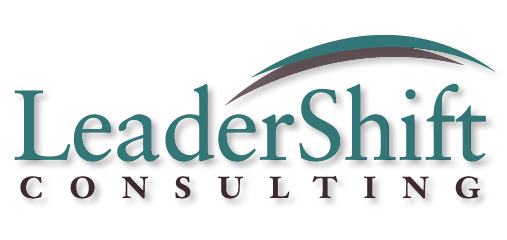Selfishness or Self-sacrifice: Is That Our Only Choice?
“Even though my efforts helped that project succeed, I’m not comfortable tooting my own horn.”
“It’s really hard for me to leave the office on time when I know my staff is still there slaving away.”
“I just can’t seem to take a day out for myself.”
Women leaders say that kind of stuff to me all the time. And when I ask them why these actions are so difficult, their answer is usually some version of “Because I don’t want to be (or appear) selfish.”
Navigating the whole selfish/selfless thing is hard for grit and grace leaders alike. For you gracesters, much of your value system is tied up with supporting others. Thus, many of you would sooner give away the store than put yourself first.
But it’s no picnic for you grit leaders either – just for different reasons. Even those of you who are comfortable advocating for yourself may hold back, out of fear of being branded as bitchy or aggressive.
If you are a woman in a position of power, then you know that the pressure to be seen as ANYTHING but selfish can be pretty intense. As a result, it may seem easier to err on the side of selflessness, because it seems like the less risky of the two options.
But actually, there are tremendous risks in that choice as well. Your views go unheard; your accomplishments stay hidden; your visibility diminishes. You may burn out because you don’t say no. Your influence and impact may wane. And that’s not just a loss for you, it’s a loss for all of us.
So is this really your only choice: selflessness or selfishness, martyrdom or bitchiness? Nope.
There’s a third option, which I call self-fullness. Self-fullness originates from that quiet but unshakable sense of yourself… a sense of your own validity (if not perfection) and a connection to the values you hold most sacred. No one can give those to you and no one can take them away. So they are the seat and source of your truest power. From a full self, you can stand from your own dignity without pushing others’ to the side. You can lean in without running over.
Self-fullness originates from that quiet but unshakable sense of yourself… a sense of your own validity (if not perfection) and a connection to the values you hold most sacred.
Self-fullness is the ability to take action from one’s core. It’s knowing our minds, our hearts, our values and our bodies. It’s knowing what matters and what doesn’t, what we’re capable of doing well and not, and what our team is capable of doing well…and not. Self-fullness is a realistic and full self-understanding, and that is the root of skillful action.
So what does that actually look like? Actually, self-fullness is not revealed by the action itself, but by the intent and spirit with which it’s carried out.
Here’s an example. I had a boss, Danielle, who took a walk at lunch every single day. Without fail. If Danielle had been rooted in selfishness, her walk would have communicated, “Screw you guys. I need ‘me’ time,” and we probably wouldn’t have appreciated it. If she were rooted in selflessness, she’d probably have given it up at our first urging. While we might have liked her for that, chances are we would have respected her a bit less.
But we could just tell that Danielle’s walk was self-fully motivated. A mid-day walk always returned her to ‘center:’ it restored her energy, perspective and sense of balance. Without her ever having to say so, we knew that that time to herself benefitted us as much as it did her. We respected and appreciated her for it.
The same action – taken from three different relationships to self. Each sending a very different leadership message and having a very different impact.
Danielle’s self-fullness had impacts far beyond herself. She was known as a formidable and trustworthy negotiator in any setting. She did not abandon her point of view when it made someone else uncomfortable. But neither did she go on the attack. Because she was clear about her values and principles, she knew where to stand and where to flex. She was nobody’s doormat and nobody’s witch.
Danielle also cultivated self-fullness in her staff. Danielle pulled me into her office. She sat me down and said, “Leslie, I’m concerned about your performance. I don’t see you staring into space enough. If you’re not staring into space, you’re not being as creative as we need you to be. So please stop doing so much, and stare out the window more.”
What about you?
Where do you tend to lean – toward self-sacrifice or selfishness?
What do you gain and lose from that default stance?
Think of a time when you felt really “self-full”. What was different about your internal experience, your outward actions and the external result?
What made your self-fullness possible? Where were you rooted? What was important?
How can you cultivate greater self-fullness in your life and your leadership?
